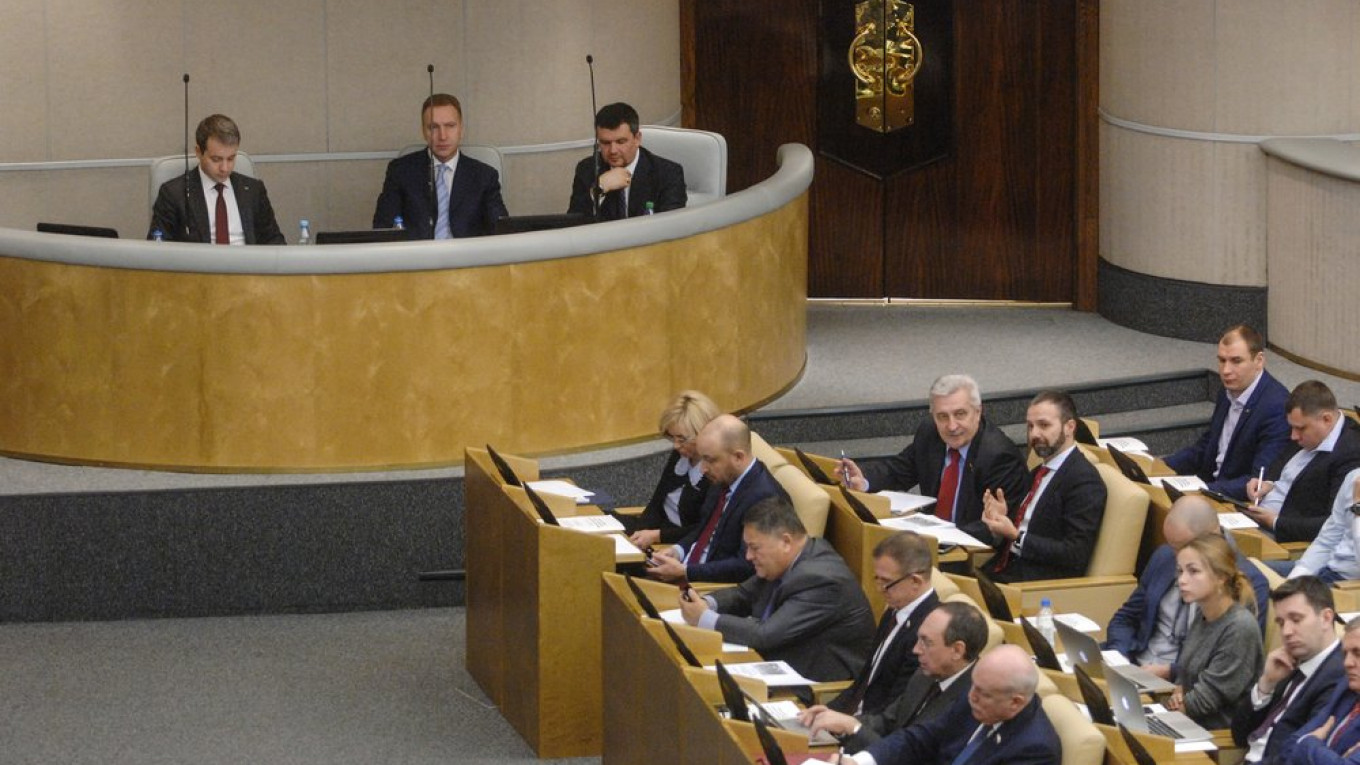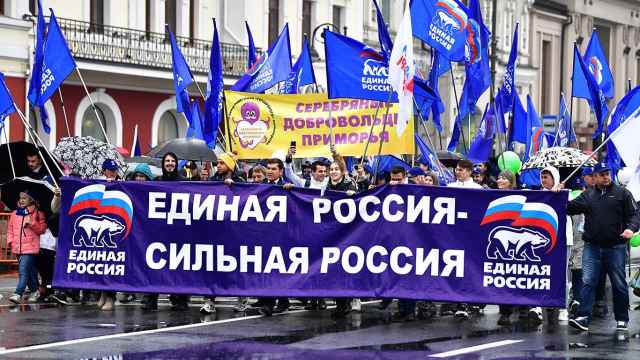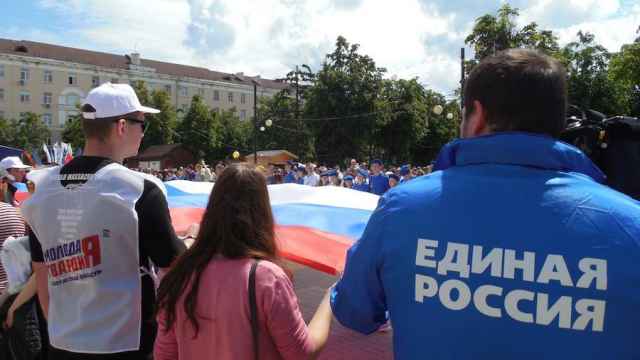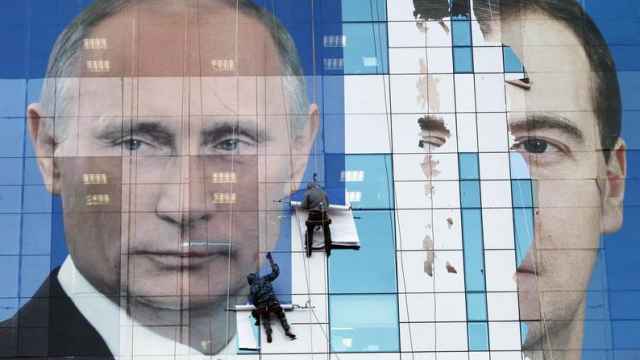Russian lawmakers have an image problem and they know it. One think tank may have the solution ahead of a crucial parliament vote: be kinder and temper your repressive urges.
The pro-Kremlin United Russia party’s brand became so toxic amid anti-government protests this summer that many of its members ran for Moscow’s city council as independents in September. Critics accused the Kremlin of waging a campaign of repression against the protesters, while a new law passed this year made it a punishable offense to disrespect the authorities.
“If 2018 was a time of growing negativism, 2019 is a year of preserving public stereotypes, including in attitudes toward authority,” the Peterburgskaya Politika think tank said in a new presentation.
It said President Vladimir Putin’s unpopular pension reforms last year have weakened the authorities’ image as kind and “generous.” Public polls and television viewership numbers show that there is a growing demand for “kindness” as the authorities are still perceived as “evil,” the think tank added.
“With radicalized attitudes, there could be attempts to pit a ‘good’ public against an ‘evil’ government,” it warned.
Peterburgskaya Politika recommended that officials “ration the punishment- and ban-related agenda, both at the media level and in the actual adoption of new restrictions.”
The think tank released its “Kinder Authority Concept” presentation ahead of the United Russia congress Saturday. The meme-filled presentation’s introductory page includes an angry emoji and a kitten.
The Open Media news website reported that party members will address their image problem at the congress, including topics mentioned in the presentation.
United Russia’s leader said Friday that it has a “real” chance to win a 301-seat majority in the 450-seat State Duma in the 2021 elections. Reports said last month that the Kremlin was looking for “pristine” candidates for the vote.
Earlier reporting has suggested that the Kremlin is considering changing the electoral system to keep a strong hold on the Duma in 2021. This would, the reports said, give Putin a choice of options as his fourth and last presidential term comes to an end in 2024.
A Message from The Moscow Times:
Dear readers,
We are facing unprecedented challenges. Russia's Prosecutor General's Office has designated The Moscow Times as an "undesirable" organization, criminalizing our work and putting our staff at risk of prosecution. This follows our earlier unjust labeling as a "foreign agent."
These actions are direct attempts to silence independent journalism in Russia. The authorities claim our work "discredits the decisions of the Russian leadership." We see things differently: we strive to provide accurate, unbiased reporting on Russia.
We, the journalists of The Moscow Times, refuse to be silenced. But to continue our work, we need your help.
Your support, no matter how small, makes a world of difference. If you can, please support us monthly starting from just $2. It's quick to set up, and every contribution makes a significant impact.
By supporting The Moscow Times, you're defending open, independent journalism in the face of repression. Thank you for standing with us.
Remind me later.






